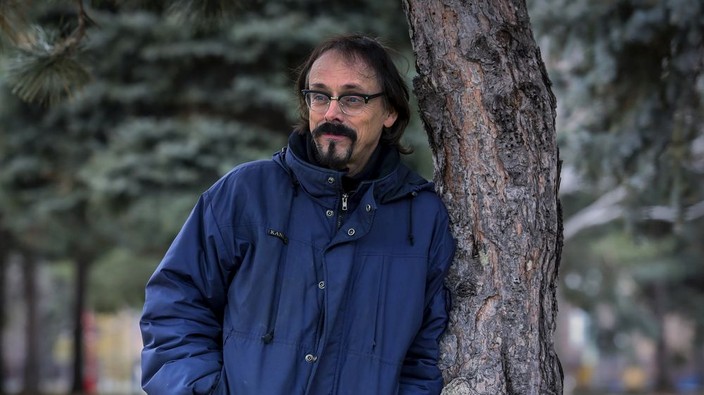world aids day: ‘there’s a moral judgment’ against those with hiv/aids
as an hiv-positive gay man, denis-martin chabot says the hardest part of dealing with the disease is the way other people react to it.

"a lot of people with hiv live in fear, they live in shame, and they try not to talk about it," denis-martin chabot says.
john mahoney
/
montreal gazette
by: marian scott as an hiv-positive gay man, denis-martin chabot says the hardest part of dealing with the disease is the way other people react to it.
“the first stigma that you feel is when you tell someone that you’re hiv-positive,” said chabot, who is the development co-ordinator of maison plein coeur, a non-profit organization that supports people with hiv.
“i’d say half the time, maybe three-quarters of the time, if you’re meeting someone for a relationship, that person will change his mind,” he said.
spectacular advances in medical science have turned hiv from a deadly disease into a chronic condition — but, unfortunately, they haven’t erased its stigma, said sarah-amélie mercure, a physician and public health specialist with the regional health directorate.
for more than 90 per cent of people being treated for hiv, medication controls the virus so well, it’s undetectable in their blood, she said.
“when they are on medication, they have the same life expectancy as anyone else in the general population,” she said.
“the really great news is that when the viral load is so low, people don’t transmit the infection anymore to sexual partners.”
but the estimated 10,000 people in montreal living with hiv are still subjected to shame and exclusion, mercure said.
advertisement
on sunday, world aids day, the regional health office, city of montreal and organizations dealing with hiv/aids launched a public-awareness campaign to combat the stigma surrounding the disease.
ads on the métro and posts on social media will stress the need to fight discrimination, exclusion and misinformation.
“what we are saying in this campaign is that the most dangerous thing about hiv is the stigma,” mercure said.
“one thing that we know that research has told us is that when the stigma is very high, which is the case now, people don’t get tested because they don’t want to know that they’re living with hiv,” she said.
a study last year by ekos research for the public health agency of canada showed one-quarter of canadians would not go to a hairdresser they knew was hiv-positive, while 40 per cent would not go to a doctor or dentist who carried the disease.
mercure said a local aids organization was asked by other tenants in its office building to use a different washroom because they were worried about the risk of infection.
such fears are unreasonable and perpetuate the shame that still surrounds the virus, she said.
“there’s a moral judgment,” said chabot, 58, an author and award-winning former journalist at radio-canada. “a lot of people with hiv live in fear, they live in shame, and they try not to talk about it.”
advertisement
chabot went public three years ago after receiving an hiv diagnosis 16 years ago.
“it’s undetectable, which means it’s not transmittable, which means there is no way that i can pass that disease on to someone else,” he noted.
the only way to end hiv transmission is to ensure that everyone infected with it receives treatment, mercure said.
of the 190 montrealers diagnosed with hiv last year, 55.3 per cent were men who have sex with other men; 30.5 per cent were people with roots in countries where aids is endemic (principally sub-saharan africa and haiti); and 3.7 per cent were intravenous drug users. the remainder were mostly people who had sexual contact with a person from the three risk groups, she said.
montreal accounted for 61 per cent of hiv diagnoses in quebec.
the good news is that there were no cases of hiv transmission of mother to baby, thanks to advances in treatment, mercure said.
“the science has evolved so much,” she said. “women who live with hiv can have babies (without fear of passing on the infection).”
researchers at the université de montréal and montreal clinical research institute recently announced they have identified a way to thwart hiv infection in its very early stages. in an article in the scientific journal cell reports, scientists éric a. cohen and tram nq pham said the research focused on finding a window of vulnerability for the virus where it could be weakened or attacked.
advertisement
on dec. 1, 2017, mayor valérie plante signed the paris declaration on fast-track cities, committing montreal to the 90-90-90 target to eradicate hiv/aids by 2030. it calls for 90 per cent of all people living with hiv to know their hiv status, 90 per cent of those with hiv to receive antiretroviral therapy and 90 per cent of all people receiving treatment to have viral suppression.
 3 minute read
3 minute read
